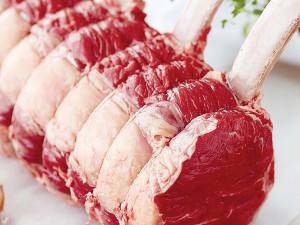OPINION: Putting more lamb on Kiwi dinner plates is one way to boost returns to farmers.
This is one of the three actions recommended by a Rabobank report to create more consistency in earnings along the supply chain.
The challenge for the red meat sector's marketing arm is to increase per capita consumption of lamb to Australian levels. That one achievement would propel the domestic market behind only China in terms of overall consumption of New Zealand sheepmeat.
According to the report, the majority of New Zealand lamb is exported, and over the past five years, New Zealand's domestic consumption has averaged just 5% of total population.
Domestic consumption is limited by population size, but at 1.95kg, New Zealand per capital consumption is not even one-third of Australia's 6.4kg, as stated by 2023 OECD data.
Australia's much higher domestic consumption adds resilience to their lamb market, as strength in domestic retail trade can help balance out global demand dynamics and associated price volatility.
The report says what our Aussie cousins have done well to support domestic consumption is to promote Australian lamb quality and nutritional value. New Zealand has pushed these messages in the past, but an opportunity exists for industry bodies to invest in marketing the New Zealand lamb story to reposition lamb in the eyes of local consumers, it says.
Read More
So, why is NZ lamb not hitting Kiwi plates more often?
According to the OECD, domestic consumption of other proteins such as pork and poultry has increased significantly and a major drive towards export markets for lamb may have contributed to higher prices domestically.
The challenge for Beef + Lamb NZ Inc is clear - convince Kiwis to eat more lamb.
Our Aussie cousins are experts at this. Let's take a leaf out of their book and try similar campaigns here. More lamb consumption in NZ means better returns for our hardworking sheep farmers.



















